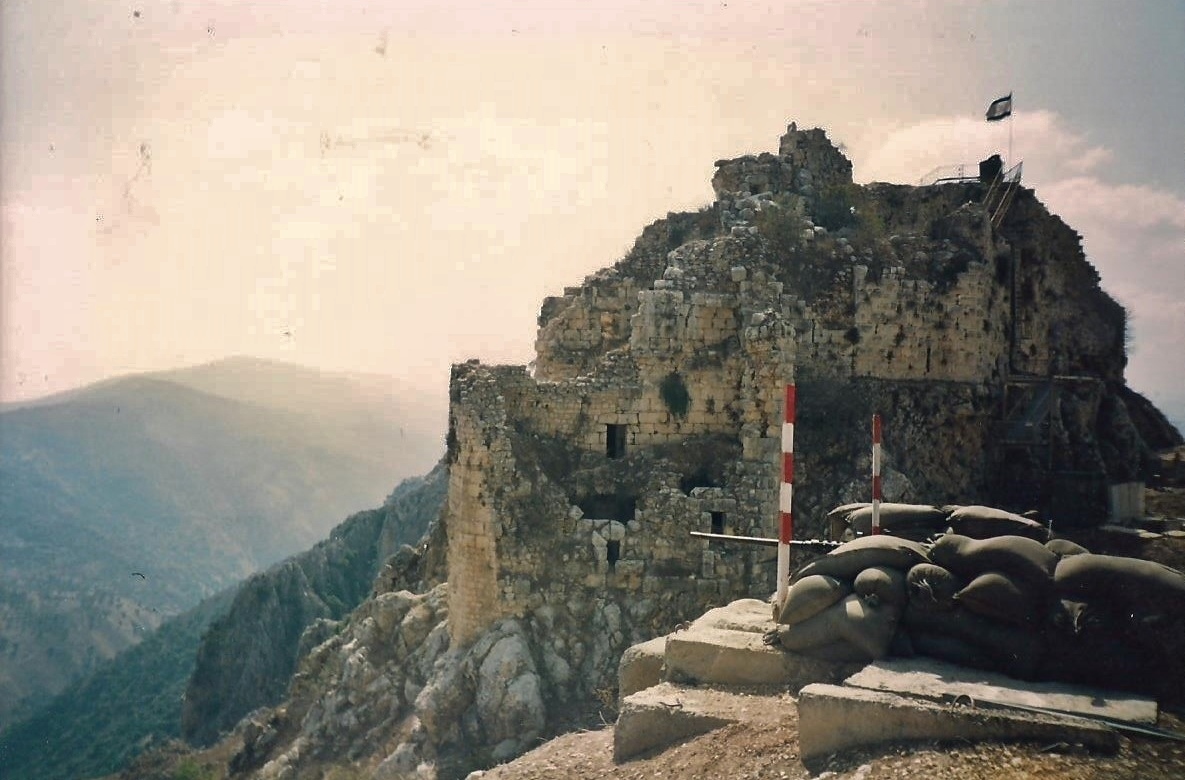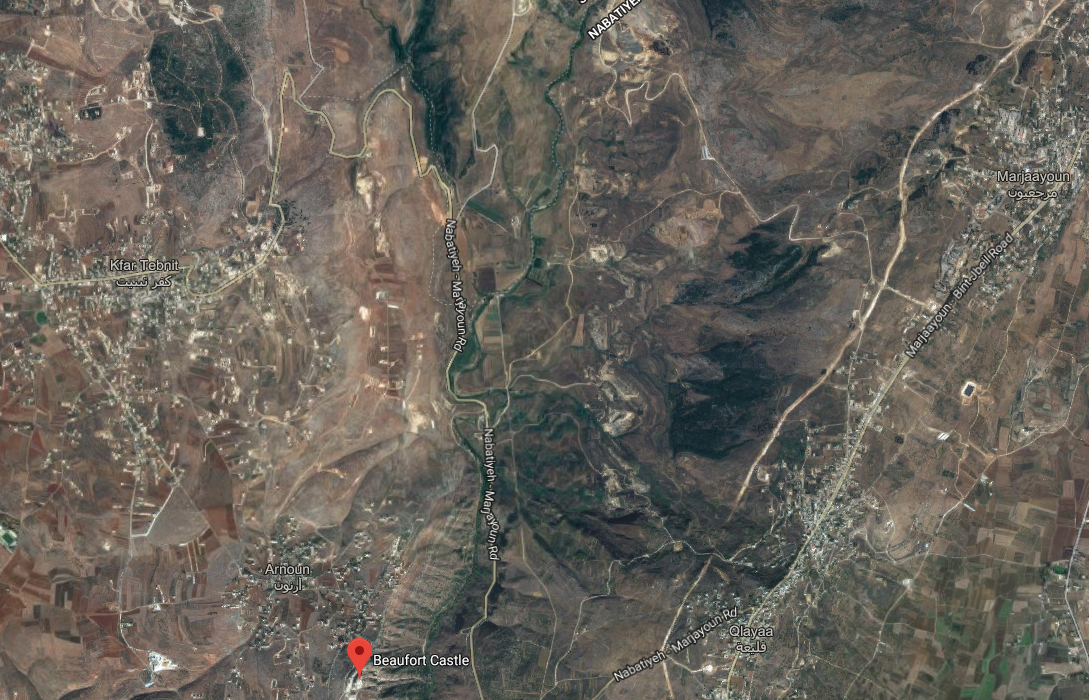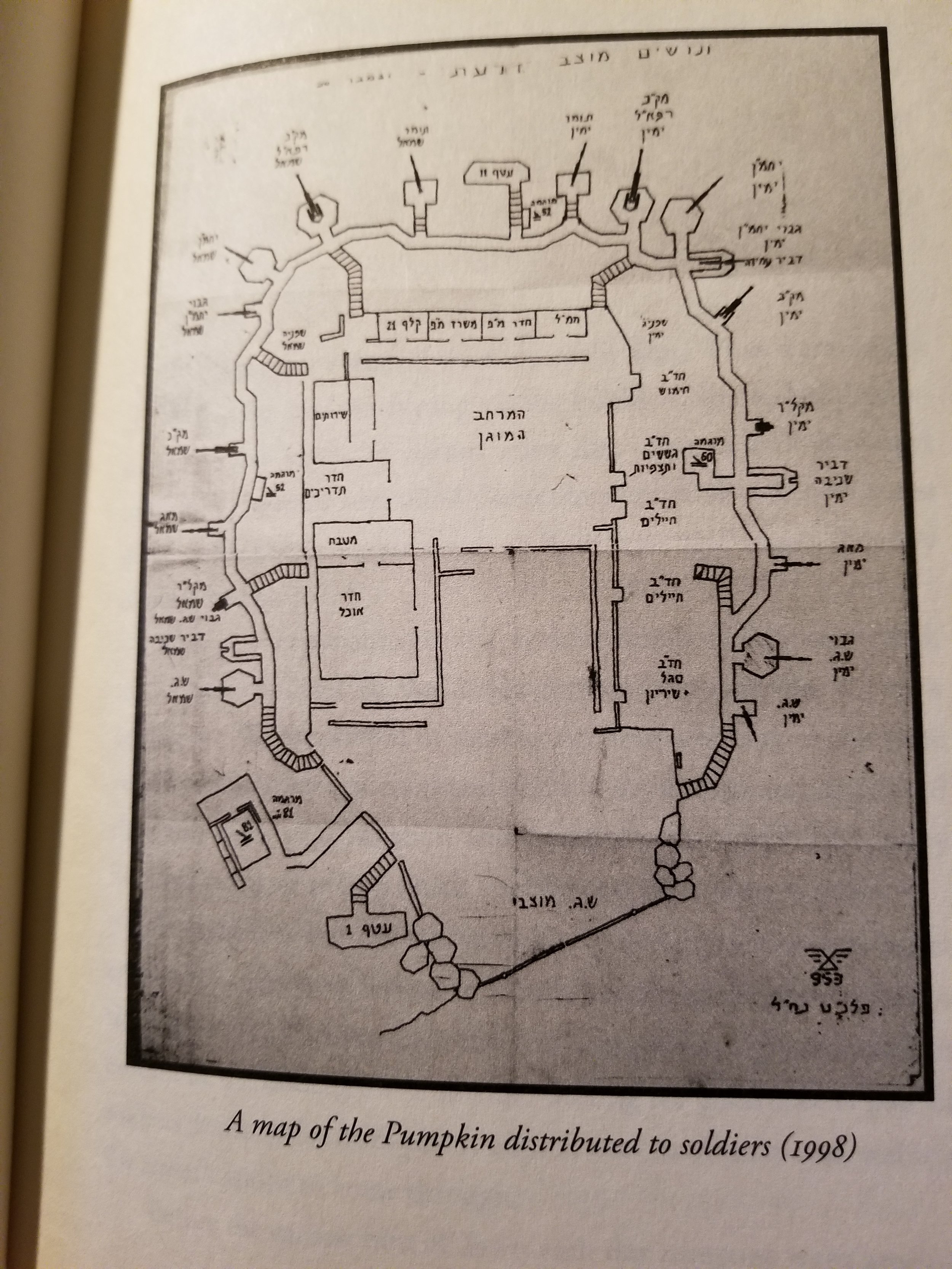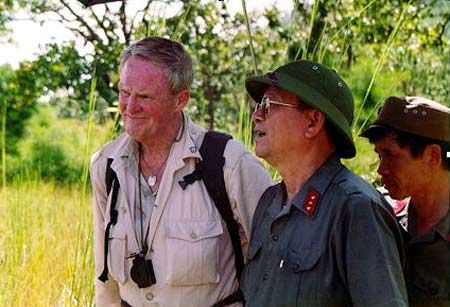Pumpkinflowers Book Review

Beaufort IDF northern military post (1995)
By Oren1973 - Own work, CC BY-SA 3.0, https://commons.wikimedia.org/w/index.php?curid=31193999
Pumpkinflowers: A Soldier's Story
by Matti Friedman
Algonquin Books of Chapel Hill (2016)
$25.95 paperback; 243 pages
ISBN 978-1616204587
I received this book for free from LibraryThing's Early Reviewers Program.
This is a book in three parts.
First, we have the account of an ordinary soldier who doesn't really want to be there.
"A. reached basic training young, healthy, and innocent". This is Avi, writing of himself in the third person.
When the sergeant said to do things on time he did, and when the commander ordered everyone to give him 50 pushups A. was the one who set the pace.
But the danger of innocence is that it gets cracked easily by stupidity and cruelty. And so not much time had passed before A. started thinking that perhaps it was not right that he was the only one who was not late, or that he was the only one who cared when the sergeant threw him a good word. His concern grew when he heard the other members of the platoon saying that the regular punishments of running back and forth were not even punishments for something they had done wrong! They were, instead, a plot by the sergeants—that is, the system—directed against them! A. began thinking about this until he could no longer sleep during the short nights allotted to them. He thought so much that he began to move slowly in the morning himself, and to run slowly when they were punished. Because all of his faculties were devoted to the problem, he did not notice anything else, and quickly became the slowest and deafest of soldiers. Because one of the commanders would speak to him on occasion and interrupt his thoughts, A. suddenly understood that what they wanted to do was prevent him from thinking. He understood that they were his real enemies! They were the enemies of thought and creativity who wanted to enslave him and turn him into a creature incapable of thought, and willing to obey them.
This thought scared him so badly that he began resisting in any way he could. He started to think and do things his own way. If they gave him a mission, like setting the tables in the dining hall, he would put the cutlery backwards! Or miss on purpose at the firing range!! Now he was a rebel!!! And thus A. fought the system, and to the best of our knowledge he might still be doing so today, somewhere in the time and space of the army...
Avi Ofner was definitely a square peg in a round hole in the Israeli infantry. Since Israel has compulsory military service, personnel officers still need to find somewhere to put men like Avi. It seems that someone had an idea of what his personality was, because his platoon seemed to be made up of similarly bookish young men:
When his tent mate, Amos, brought a book of philosophical meditations called In the Footsteps of Thoughts he and Matan actually read it and then talked about it for weeks, lying sore on the ground after days of exhaustion, breathing in the smell of their own unwashed bodies, of earth, and of dusty canvas....Today, Matan is a physicist. Amos is a psychiatrist and lives in Paris.
For all of his adolescent rebellion, Avi also refused to take a desk job when a physical turned up a spinal cord defect a couple of years into his enlistment. He preferred serving at the Pumpkin, a hilltop fort in southern Lebanon near Beaufort Castle. Avi and his mates in the Pioneer Fighting Youth were stationed in a series of such forts in the South Lebanon Security Zone.

My best guess for the approximate location of the Pumpkin, based on Matti Friedman's descriptions
That stubborn devotion got Avi killed in an unfortunate helicopter accident in 1997, when he was being flown back to his post in Lebanon in a desperate attempt to avoid bombs on the roads. After that, the soldiers went back to the roads, in a desperate attempt to avoid more helicopter crashes. I think Friedman is right that this crash was the beginning of the end for Israel's long-running low-grade war in Southern Lebanon, which had been going on for almost twenty years at this point.
My second part is Friedman's firsthand recollections of his time at the Pumpkin. Friedman's parents had emigrated from Canada, and now Friedman's compulsory service was due shortly after the crash that killed Avi. This would make Friedman a couple of years older than me, if he was 19 in 1997. Were I Jewish, and had my family immigrated to Israel, I easily could have found myself in the exact same place that he did.

A map of the Pumpkin, from the front matter of Pumpkinflowers. There weren't enough maps for my taste in the book.
That place turned out to be the Pumpkin, with that unusual combination of boredom and terror that garrison duty provides. Friedman's prose changes in this section, becoming simpler and more direct. The first part of the book was based on Avi's writing and interviews with people who knew him, whereas the second part is largely Friedman's direct recollection.
Interleaved with Friedman's account is a short history of the Four Mothers movement, which arose in response to the helicopter crash that killed Avi. The crash killed 73 soldiers, which to put into perspective for me, would be the equivalent of 3400 dead Americans, based on the relative population sizes of our two countries at the time. That is almost as many American soldiers who died in the 2003 American-led invasion of Iraq. Except all at once.
Thus it isn't surprising that the Four Mothers movement successfully campaigned to get Israel to withdraw from Lebanon in 2000. From Avi's and Friedman's accounts, the whole hilltop fortress thing never seemed to have been terribly well thought out. Rather, it was blundered into, and since militaries tend to be extremely conservative, the Israeli army just kept on doing what they had been doing, until something shocking happened and allowed everyone to reassess.
The final part of the book is Friedman's post-Pumpkin civilian life, and his bold quest to go see the Pumpkin again. I was struck by the way in which Friedman described the process by which shared suffering can forge lasting bonds among soldiers, and by extension the rest of your nation. Given how small Israel really is, this process is much more intense than it possibly could be in a larger nation like the United States.
Using his Canadian passport, Friedman traveled into Lebanon. He saw the country, posing as a tourist to deflect suspicion that he might have once served as an Israeli soldier. Since it hadn't really been that long, Friedman couldn't meet his former enemies openly, the way Hal Moore met Nguyen Huu An.

Vietnamese Lt. Gen. Nguyen Huu An and Hal Moore
Nonetheless, Friedman still manages to humanize his former [or maybe current] enemies. Which is not to say that he uncritically accepts what they might say about him or his adopted country, but rather he just presents them as they are, which is what he tried to do for himself and Israel. I think he does a reasonably good job.
I would have liked more maps though.


Pumpkinflowers: A Soldier's Story By Matti Friedman



Comments ()